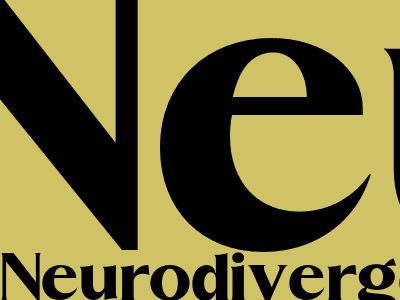
Neurodivergent Brain
The Quirky Powers of the Neurodivergent Brain
A Deeper Understanding of Neurodiversity
Neurodivergence encompasses a wide spectrum of cognitive conditions, including autism, ADHD, dyslexia, and Tourette syndrome. It affects how individuals perceive, interact with, and process information. While neurodivergent brains may face certain challenges, they also possess unique strengths and perspectives.
Unveiling the Strengths of Neurodivergent Brains
- Enhanced Attention to Detail: Neurodivergent individuals often exhibit an extraordinary ability to focus on specific details and patterns, allowing them to excel in tasks requiring meticulous observation.
- Creative Problem-Solving: Their unconventional thinking patterns and perspectives often lead to innovative and out-of-the-box solutions.
- Strong Memory: Many neurodivergent individuals possess exceptional memory skills, particularly for specific topics or areas of interest.
- Empathy and Compassion: Neurodivergent individuals often have a heightened sense of empathy and compassion, allowing them to connect deeply with others.
- Sensory Processing: While sensory sensitivities can be a challenge, they can also enhance perception and lead to unique artistic talents.
Recognizing the Challenges Faced
- Communication Difficulties: Neurodivergent individuals may experience challenges with social cues, nonverbal communication, and understanding the intentions of others.
- Executive Function Deficits: Executive functions such as planning, organization, and time management can be more challenging for neurodivergent individuals.
- Sensory Sensitivities: Noise, light, touch, and other sensory stimuli can be overwhelming and disruptive for neurodivergent individuals.
- Emotional Regulation: Individuals with neurodivergence may experience heightened emotions and difficulty regulating their responses.
- Social Isolation: Due to communication challenges and sensory sensitivities, neurodivergent individuals may experience social isolation and difficulty forming relationships.
Encouraging Inclusivity and Support
Creating inclusive environments and providing support for neurodivergent individuals is crucial for their success and well-being. Here are some key measures:
- Respect and Understanding: Treat neurodivergent individuals with respect and seek to understand their unique perspectives.
- Flexible Accommodations: Provide flexible arrangements in education and work settings to accommodate their specific needs, such as extended time for exams or sensory-friendly environments.
- Positive Role Models: Showcase successful neurodivergent individuals to inspire and empower others.
- Mental Health Support: Provide access to mental health services and support to address the challenges they may face.
- Educational Resources: Offer educational resources and training programs to increase awareness and understanding of neurodivergence.

Comments